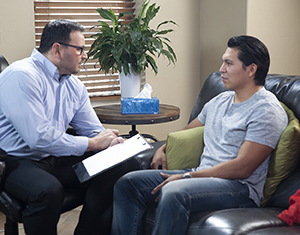Attention-deficit/hyperactivity disorder (ADHD) starts in childhood. It may continue throughout your life. When it does, it may affect your job and even your relationships. But with help, you can manage ADHD.
Therapy
Your therapist can help you learn healthy ways to cope with ADHD. Sometimes, your partner or family may attend your sessions with you. This helps them understand more about your disorder and give you additional support.
Coaching
An ADHD coach works with you to achieve your goals. You’ll learn the best ways to manage your time. You’ll also learn to stay away from clutter and noise that may distract you. In time, your life will have more order and structure. And your coach will provide support and feedback on your progress.
Work
Look for jobs where you can be free and creative. Stay away from those that are dull or centered on details. You may still need to make a special effort. These tips may help:
-
Try to work at home, at least part time.
-
Ask for a private office.
-
Use headphones to muffle noise.
-
Work on more than 1 project at the same time. When you get bored with 1, switch to another.
-
Work on boring tasks when you feel most alert.
-
Have a schedule for each day and make every effort to stick to it.
-
Ask your office assistant or secretary to help with details.
-
Use a day planner and to-do lists. Write yourself notes or set up reminder alerts on your electronic devices.
-
Reward yourself when you finish a task.
Medicines
In most cases, medicines can help control symptoms of ADHD. Most often, you'll use medicine along with therapy, coaching, and lifestyle changes. Your healthcare provider may prescribe a stimulant to help you stay focused. Or you may take a type of antidepressant or other medicine. It may take some time to find what works best for you. Keep in mind that medicines don’t cure ADHD. And they may cause side effects, such as headaches, trouble sleeping, or stomach problems. Take your medicine as prescribed. If you’re bothered by side effects, be sure to tell your healthcare provider. Never share your medicine or use another person's. Always talk with your healthcare provider before making any changes to your medicine.


